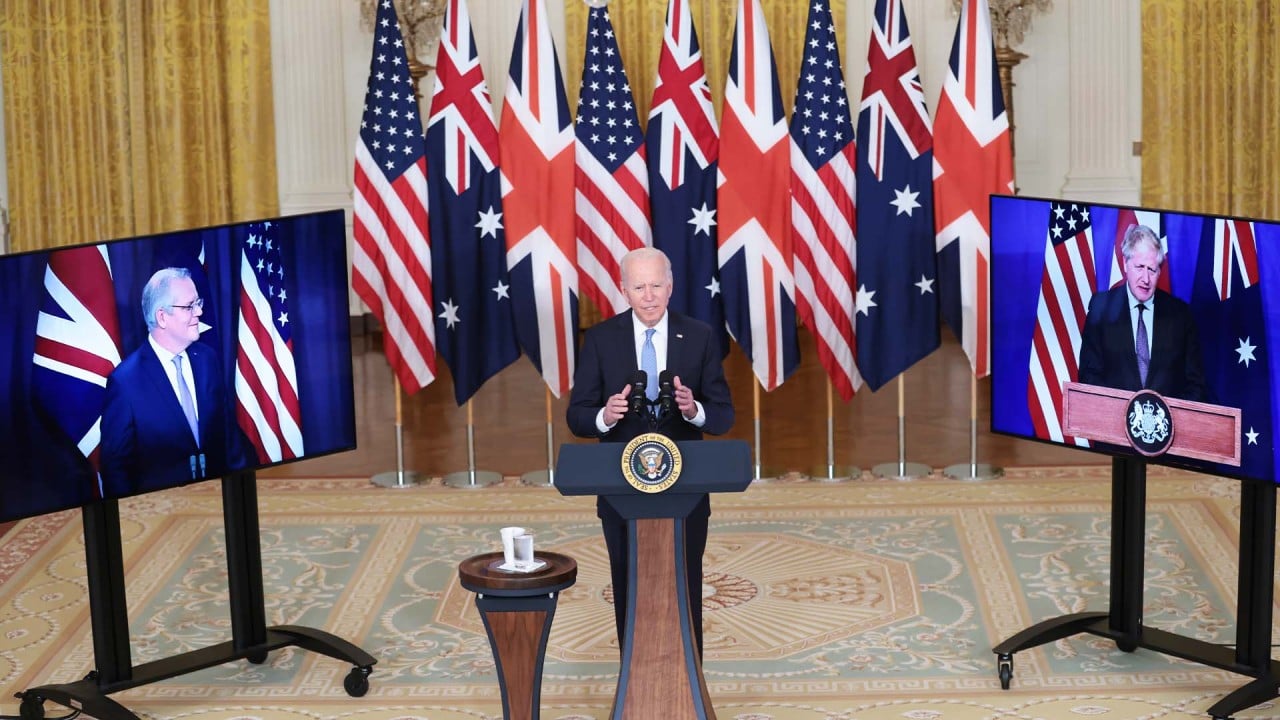
Beijing slams South China Sea ‘provocation’ after turning away German warship
- Countries outside the region told by Chinese foreign ministry to respect regional nations’ efforts to maintain peace and stability
- German frigate Bayern was refused permission to visit Shanghai during its mission to the Indo-Pacific
In response to the German foreign ministry’s announcement that the frigate Bayern had been refused permission to visit Shanghai, Chinese foreign ministry spokesman Zhao Lijian said on Thursday that “countries outside the region should respect regional countries’ efforts to maintain peace and stability, and play a constructive role”.
“China attaches great importance to the development of an all-round strategic partnership between China and Germany, including cooperation between the two militaries, and is willing to carry out friendly exchanges on the basis of mutual respect and mutual trust,” Zhao said, adding that it was up to Germany to “create a good atmosphere for this”.
Zhao again accused “a few powers” of frequently conducting freedom of navigation operations in the South China Sea to flex their muscle and instigate trouble. He said China was determined to safeguard its sovereignty and maritime interests.

03:51
US, UK, Australia announce ‘historic’ military partnership in Pacific
China has overlapping claims with several neighbours to the resource-rich South China Sea, through which about a third of global trade also passes.
The United States has frequently deployed its warships and planes to conduct “freedom of navigation” operations and naval exercises in the region to challenge China’s claims, and asked its allies to do the same.
Before the Bayern’s departure last month, German Defence Minister Annegret Kramp-Karrenbauer said its goal was to show allies in the region that “we are standing up for our values and interest together”.
She also said she wanted the European Union to establish a “permanent presence” in the region.
After the rejection of the port call request, the frigate’s route was updated to include a stop in the northern Australian city of Darwin.
Shi Yinhong, an international relations professor at Renmin University, said that for nearly a year, the German government had been repeating remarks about coordinating with allies, establishing a strategic presence and safeguarding freedom of navigation, and this was probably the cause of Beijing’s anger.
“According to these statements, Germany’s motives could be reasonably considered by the Chinese government to be harmful to China’s security interests and sovereign claims,” he said. “Under those circumstances, we could imagine that China would refuse the German warship permission to call at Chinese ports.”
Nils Schmid, foreign affairs spokesman for the Social Democratic Party – which is leading in the polls for the German election, to be held in less than two months – said that the frigate’s journey was “symbolically important” but he did not envisage Germany becoming very active militarily in the region.
Additional reporting by Rachel Zhang

